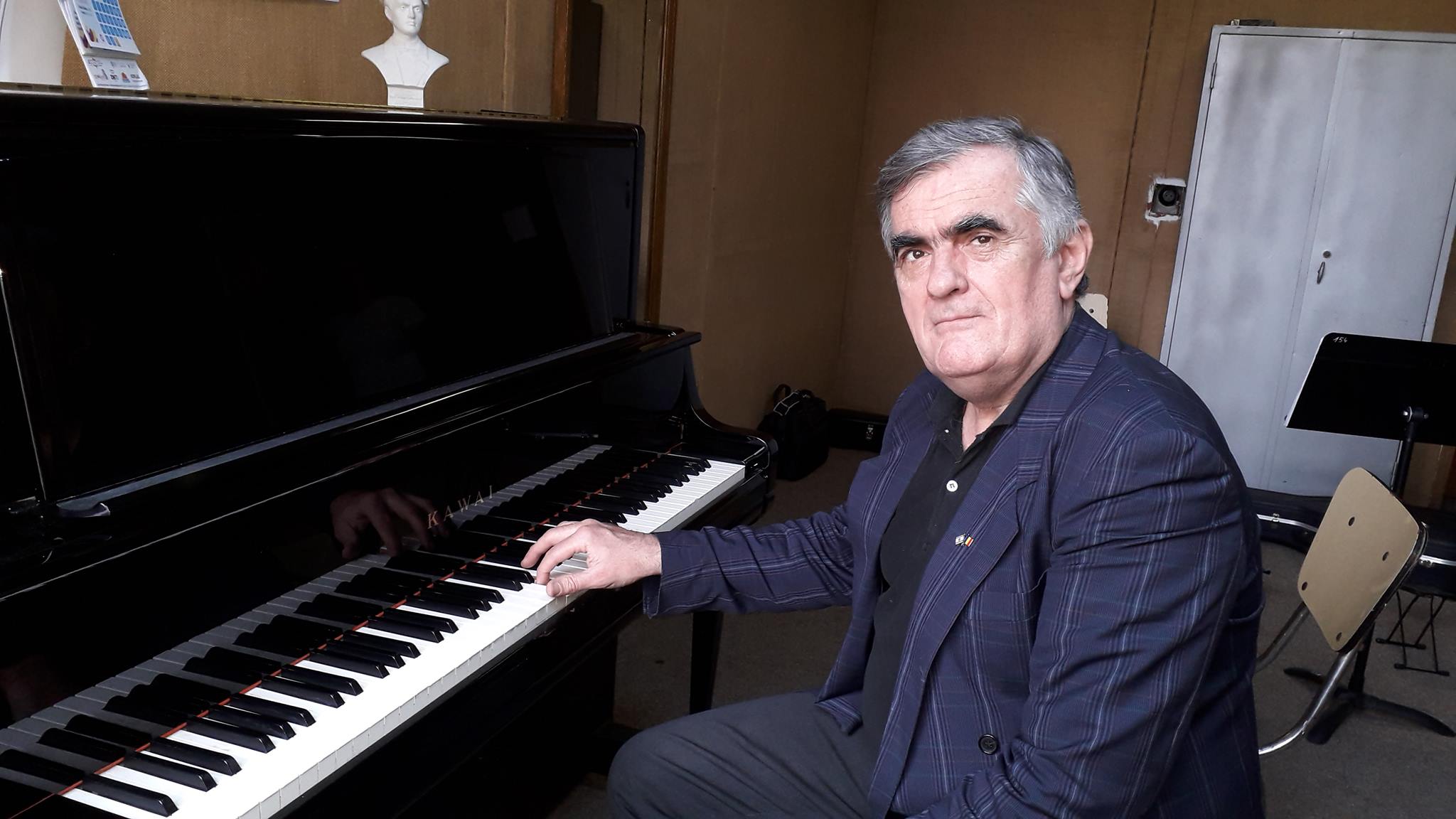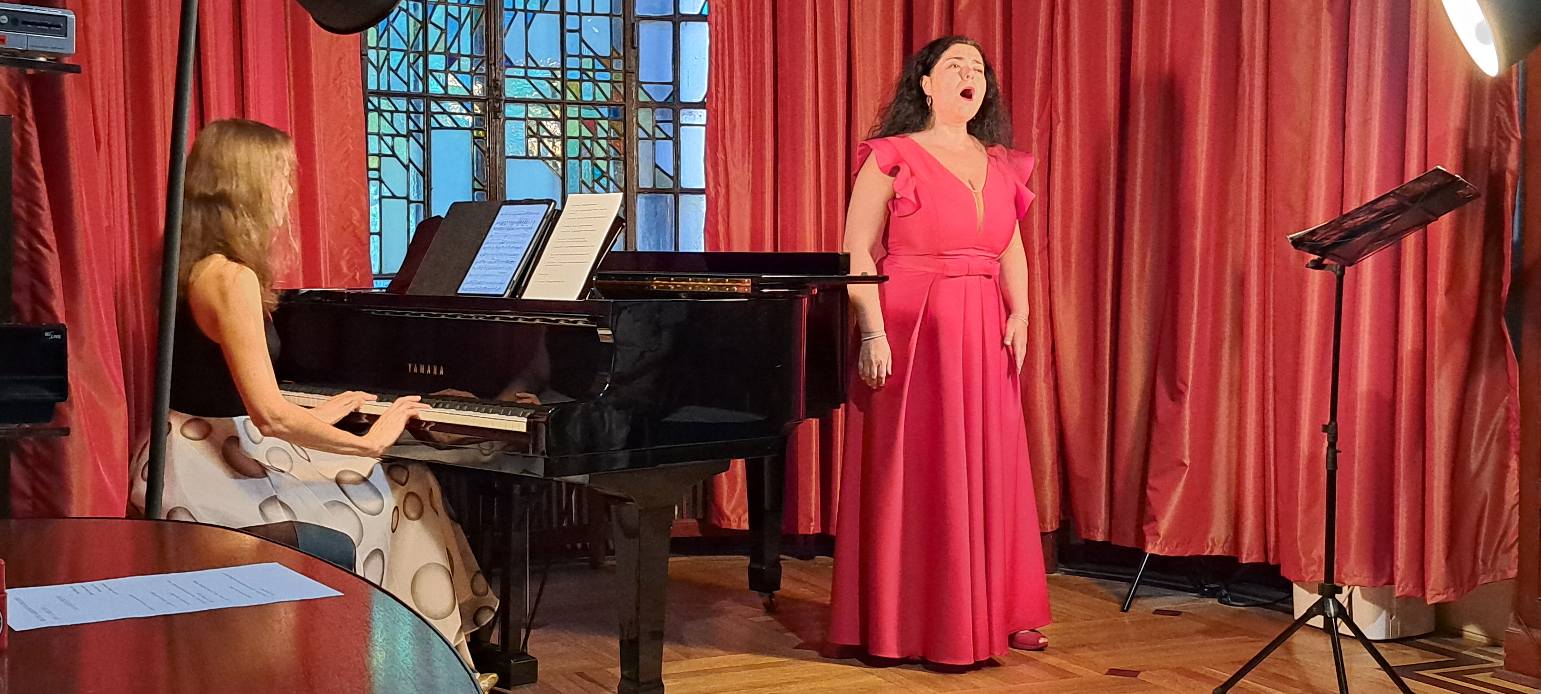About
According to musicologist Octavian Cosma, Nichifor's eclectic style is based on neoromanticism but has included elements of jazz (in his Third and Fourth Symphonies) and the use of tape recordings as in his opera Domnişoara Cristina. In the 1990s, he "developed a simplified style employing themes reminiscent of Byzantine chant."Opera, symphonic, vocal-symphonic and visual music
"Constellations" for Orchestra (1977)
Symphony I "Shadows" (1980)
Cantata "Sources" (1977)
Cantata "Gloria Heroum Holocausti" (1978)
Opera "Miss Christina" (libretto by Mircea ELIADE,1981)
Symphony II "Via Lucis" (1985)
Symphony III "American Symphony – I" (1986)
Symphony IV "American Symphony – II" (1987)
Symphony V "Pro Patria" (1987)
Symphony VI "Time Archways" (1988)
Cantata "Remember" (1988)
"Missa da Requiem" (1990)
Chamber-Opera "Talaria" (libretto by Etienne DE SADELEER, 1994)
Cantata "Per Christum" (1997)
"Concerto GRIEGoriano" for Piano and Orchestra (1997)
Chamber-Opera "Le Martyre de Saint Claude Debussy" (libretto after Claude Debussy and E.A.Poe, 1999)
Symphony VII "Cello Memoirs" (2001–2003)[12]
"Cries from Earth to Heaven" – to the Holocaust martyrs (2007)[13]
"Tribute to Joseph Smith, The American Prophet" – visual music (2005–2007)[14]
Shoah – music dedicated to the Holocaust martyrs (2010–2013)[15]
Pentagon – visual music (2010)[16]
God Bless America! – visual music (2010) [17]
Symphony VIII "Tom & Huck" (2011–2012) [18]
Symphony IX "God Bless Romania" (2016) [19]
Piano Concerto No.2 (2016) [20]
Homage to my Mother (dedicated to Dr. Livia Balint-Nichifor) (2017)[2]
Chamber, choral, and vocal music
"Postludium" per Organo (1975)
"Sorcova" per Coro Misto a capella (1995)
Quartetto per Archi I – "Anamorphose" (1976)
"Carols" per Trombone e Percussione (1978)
"Invocatio" per Flauto e Celesta (1979)
"Canto di Speranza" per Flauto, Violino, Viola, Cello e Pianoforte (1981)
"Onirophonie" per Fl., Vn.e Pf. (1982)
"Chanson d'Antan" per Vn.e Pf.(1983)
"Carnyx" per Clarinetto (1984)
"Tango for Yvar" per Pf.(1984)
Quartetto per Archi II – "Vallons de l'Oubli" (1984)
"Aprite le porte di questo castel" per Coro Maschile (1984)
"Morendo" per Cb. e Pianoforte (1985)
"6 Melodies Irlandaises d'Amerique" per 2 Ob.,C.i. e 2 Fg. (1985)
"Czarna Rosa" per Mezzo-Soprano e Pf. (1986)
"7 Canti Rumeni di Natale" per 4 Trombe, 4 Tromboni ed Organo (1986)
"Horn Call Rag" per Corno e Pf. (1986)
"Ave Maria" per Soprano ed Organo (1987)
"Isola di Euthanasios" – Sonata "sopra acqua e pietra" per Pianoforte (1988)
"Transgressio" per Fl.,Ob. e Fg. (1989)
"Battuta" per Percussione (1989)
"Il nome della rosa" for violoncello and piano 4 hands (1989)[21]
"Lacrimosa" per Tenore e Pf. (1989)
"Meditatio"per Organo (1990)
Missa "Actio Gratiarum Oecumenica" per Coro Misto a capella (1991)
"Natalis Domini" per Coro Misto a capella (1992)
"Isihia" per Cello (1992)
"Epiphania" per Cello e Pianoforte (1993)
"Rorate Caeli" per Soprano ed Orchestra da Camera (1994)
"Medium per Arpa" (1995)
"Medium per Flauto" (1995)
"3 Christmas German Chorals" for Organ (1997)
"Hommage a Debussy" per 2 Pf. – ossia Pf. e Nastro Magnetico (1998)
"La Nuit Obscure" per Orchestra da Camera (1998)
"Invocation a Themis" per Sax. Alto (2001)
"Isihia" for violoncello and tape (2002)
Tu es Sacerdos (To my Mother Dr. Livia Nichifor) (2017)[

